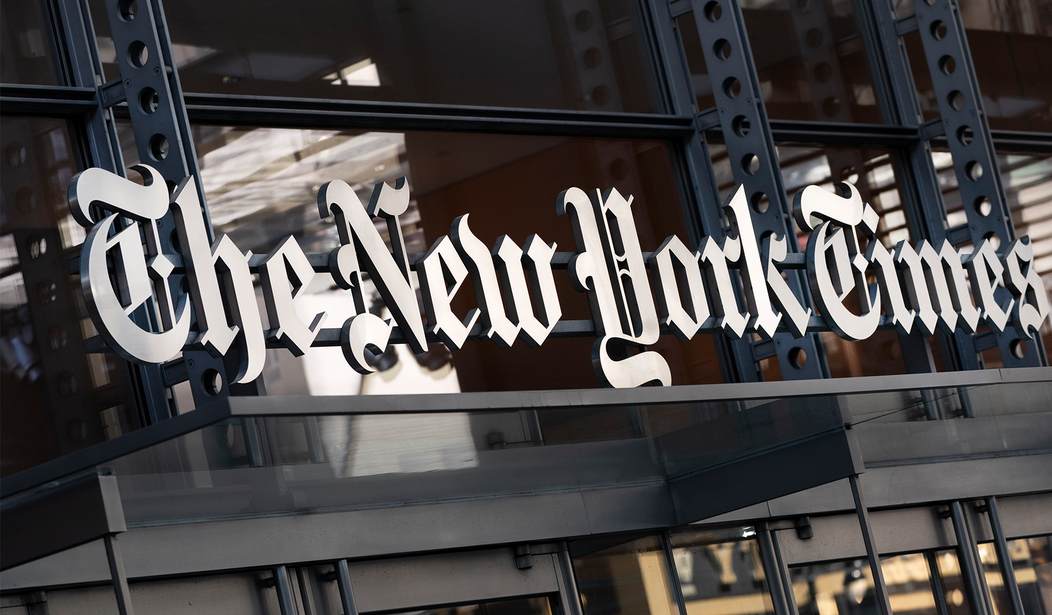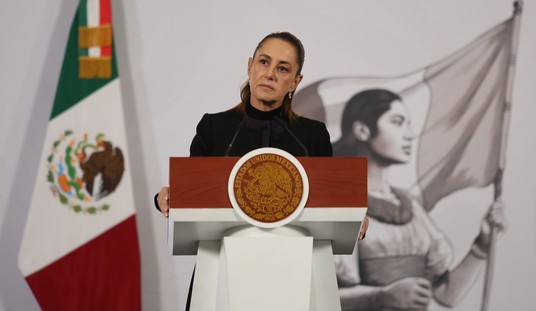Part of the beauty of being a human being is that throughout our lives, we continue to grow and learn. I certainly hope I have done that. We get exposed to new and different things, we try to think outside the box, and if we can muster the courage, we actually move outside the box. But sometimes, when you have done things the same old way and surrounded yourself with the same kind of people, you have an epiphany of sorts and realize that those behaviors and those people might not be so good after all.
James Bennet is a former editorial page editor of The New York Times. He recently wrote in "The Economist," a piece detailing the many ways in which he believes the paper he loved, The New York Times, and in general, the profession he loves, journalism, has, in his words, "lost its way." It appears that what got him thinking was Sen. Tom Cotton's (R-AR) Op-Ed on deploying troops during the George Floyd protests in 2020. I wanted to respond to Mr. Bennet's concerns.
The New York Times did not break this story and they wouldn’t be doing journalism like this.
— Richard Wilkinson (@wilkinsoncape) December 12, 2023
Citizen journalism is leading the way. https://t.co/XpUiaLN6Zt
I will start by saying I may be a foreign object to someone like Mr. Bennet. He began his career in journalism the old-fashioned way, as a young reporter for the "Metro" desk at The New York Times. I spent 30-plus years in the healthcare industry. In my 40s, a light went on, and I decided if I wanted to do something different with my life, now was the time. I began blogging and got involved in local politics. At age 52, I decided to go back to school to get my degree in Communications/Journalism. I am also a bit different from Mr. Bennet because, while I have reported straight news stories without any opinion, blogging was where I got my start, and opinion was how blogging got started.
The New York Times may have been the gold standard for many up-and-coming journalists, but I started my career at a point where opinion journalism was the norm. Because of the internet, nearly everyone gets their news and information from websites they trust, and they base that trust largely on whether they agree with the information being disseminated. The internet has opened up a vast array of opinions, but at the same time, may have had a big hand in dividing Americans so acutely. Mr. Bennet laments the muddying of straight news at the Times and the massive infusion of opinion that is now the hallmark of an American institution. He talks about the groupthink that permeated the newsroom and the minds of the reporters who work there. I would agree. Newspapers, no matter if they are The New York Times or a local paper reporting on farming, need to have the integrity of honest, unbiased reporting. We all know that is not what happens at The New York Times.
🚨 MASTER TROLL: Tucker Carlson parks trucks in front of The New York Times, CNN, and Washington Post that say “Corporate Media is Dead” pic.twitter.com/uokqjrBM8n
— Benny Johnson (@bennyjohnson) December 14, 2023
Bennet talks a lot about Donald Trump and what effect he believes his candidacy and subsequent presidency had on journalism. He advocated for more conservative voices throughout various departments at the paper to encourage debate and showcase different opinions so the Times would not be seen as exclusively liberal. But it seemed that while Bennet advocated for more conservative voices at the Times, he leaned on Donald Trump as an excuse to justify bias. And he had an example close to home. In August of 2016, New York Times Media columnist Jim Rutenberg argued that Trump's perceived rudeness and difference of opinion with most of mainstream media was license to cover him differently, a.k.a., with bias.
Bennet is not a fan of Trump — or even conservatives and/or Republicans. But as a relative newbie, I appreciate the fact that he sees the blurring of news and opinion as not something good for journalism in general. He relates a story about one of the few conservative writers who complained of a double standard at the paper. Bennet took the concerns to publisher A.G. Sulzberger, who, irritated, basically told Bennet to tell said complaining conservative, "That's just how it was," and "to get used to it." He said it was the one act he was ashamed of.
Bennet described his several stints at The New York Times and said he began to think of himself as a sort of Rip Van Winkle character. Every time he returned, there seemed to be more bias, and it was acceptable. Slick new reporters who are internet and social media savvy, who might see journalistic integrity as getting the most likes or follows, and who don't know anyone who thinks differently than they do, will see Bennet as a relic of some old bygone era of journalism, but that is precisely the problem. And it has become an example for people like me of what not to become. I have strong opinions, and fortunately, I get to write about them. An internal memo from the Times marketing department noted that 95 percent of Times subscribers said they were Democrats or Independents and thought the Times was liberal — and that perceived liberal bias became a selling point for subscribers. But those same subscribers also wanted to believe that the Times was unbiased. That is patently dishonest.
James Bennet and I don't have much in common. We started our careers in vastly different ways, and we have different political opinions for sure. But Bennet says he wants Americans to listen to each other. I do, too, and they are not going to listen to or read publications like The New York Times if they believe that bias and only one viewpoint are alive and well. I'm sure his goal wasn't necessarily to educate a somewhat newbie conservative journalist, but like a good story, good teachers can be found in places you don't expect.
James Bennet indicts his former paper for its close-mindedness. Good enough, but it's *so* gentle. For example, what a nice way to talk about the horrific propaganda viciously pushed by the New York Times without correction. https://t.co/gnHOhNBQ7i pic.twitter.com/RiyDlRounW
— Mollie (@MZHemingway) December 14, 2023















